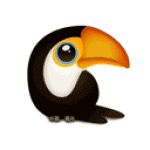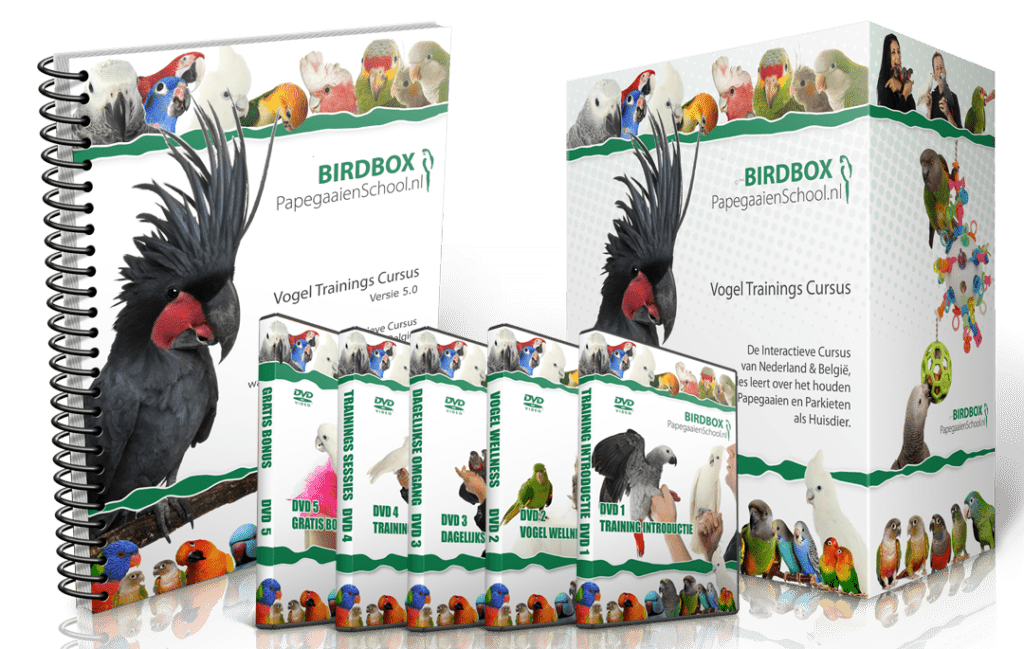Cockatiels are the parrots with the attitude problem and stylish haircuts. Owners often wonder what to feed them. Can they safely eat mangoes? Yes! But in moderation due to their high sugar content. Mango pits should be avoided, as they can cause intestinal blockages. Mango should only be offered as a treat, not as part of their regular diet.
This fruit is packed with vitamin C and other nutrients that can benefit your pet. However, too much of anything can be bad, so caution is needed. Always speak to a vet before introducing any new foods to your pet’s diet.
The Association of Avian Veterinarians (AAV) states that cockatiels can enjoy small portions of ripe mango flesh without severe side effects. To ensure your pet’s health, it is vital to provide them with a balanced diet. If you plan to offer mango to your feathered friend, do it cautiously and in small amounts.
What is a cockatiel?
Cockatiels, scientifically known as Nymphicus hollandicus, are a popular pet bird species native to Australia. These small parrots have a charming yellow face and crest, and they are friendly and intelligent – great companion birds!
When it comes to diet, cockatiels require a mix of seeds, fruits, vegetables, and proteins. They can eat some fruits, like apples and bananas, but not all are safe for them. Can cockatiels eat mangoes?
Mangoes provide essential nutrients, like vitamin C, potassium, and fiber. But they are also high in fructose sugar, which could lead to health problems if consumed too much. So, it’s best to offer a small amount of ripe mango flesh occasionally, as a treat alongside their regular diet.
It’s important to note that not all parts of the mango tree are safe for birds. The leaves and sap contain chemicals, like urushiol, which can cause skin irritation or respiratory issues upon ingestion or inhalation. So, keep your cockatiel away from mango trees if you have one in your yard.
Who knew a bird’s diet could be so complex?!
Nutritional needs of cockatiels
Cockatiels need specific nutrition for their well-being. A balanced diet is key for physical growth, a strong immune system, and reproductive health.
- Feed 60-70% pelleted bird food, plus assorted fruit & veg.
- Give less than 30% seeds as too many can lead to obesity & poor nutrition.
- Provide calcium-rich foods, like kale, spinach, broccoli, and cuttlefish bone to avoid calcium deficiencies & egg-binding in females.
- Offer fresh water daily to keep them hydrated.
Also, cockatiels have special needs that influence their nutritional requirements. For example, breeding females need extra nourishment to ensure enough calcium during egg-laying.
To keep your feathered friend healthy, give them nutritious food all day. Plus, provide toys and leafy greens to encourage active foraging habits. Regular vet visits are important too.
Mangoes are a no-go for cockatiels – they’re impossible to eat whole!
Mangoes and cockatiels
Mango is a yummy tropical fruit that many love. So, can cockatiels eat it safely? Studies say yes! Mango has lots of nutrition and Vitamin C, but too much can make them sick with vomiting and diarrhea.
Small pieces of mango are best as an occasional treat. Keep a balanced diet of birdseed, veggies, and fruit as the main focus.
Studies show carotenoids in mangoes have antioxidant powers that could be good for birds like cockatiels (Zera et al., 2016).
Feeding your cockatiel mangoes: not so smart. It’s like giving a toddler a bucket of sugar. Monitor how much they get to avoid a disaster!

Precautions while feeding mangoes to cockatiels
Mangoes can be a tasty treat for cockatiels, but certain precautions must be taken for the bird’s safety. Here’s what to remember:
- Only give ripe and fresh mangoes.
- Remove skin and pit to prevent choking and digestive issues.
- Mangoes should be an occasional treat, not a staple.
- Too much fruit sugar can cause obesity.
- Look out for signs of discomfort or allergies.
Remember, each bird has different dietary needs. Consult with a vet before making any changes. Also, try different fruits and veggies to make sure your cockatiel is getting all the nutrients it needs.
Keep these tips in mind when treating your feathered friend to mangoes. They’ll love you for it! Be careful, though – feeding cockatiels mangoes is like playing Fruit Ninja with a live bird!
Best way to feed mangoes to cockatiels
Mango-Munching for Cockatiels: A Professional Perspective! Nutritious and delightful – there are many foods that are suitable for birds’ consumption – and mango is one of them! Consider these three points when feeding your cockatiel mango:
- Wash the fruit properly.
- Peel off the skin and cut into small pieces.
- Feed it as a treat or with their diet.
Apart from Vitamin A, C and antioxidants, mangoes have specific elements that can benefit your pet bird.
A Science Direct study found that mango’s bioactive compounds could strengthen the immune system of poultry due to its anti-microbial properties.
Get this – mango peels contain even more antioxidants than the fruit itself!
Want alternative options for your cockatiel, other than mango? Here are some that won’t leave them feeling sour.
Alternatives to mangoes for cockatiels
When it comes to cockatiels, it’s important to feed them a diverse range of fruits and veggies. Here are some alternatives to mangoes: apples, peaches, pears, berries, melon, and papaya.
Always check with avian experts before introducing something new into their diet. A varied diet helps them stay healthy and well-nourished. But, feeding too much fruit can lead to obesity, so feed in moderation and prioritize balance.
In the wild, cockatiels feed on seeds, nuts, and vegetation. But, domestication has allowed them to eat fruits they wouldn’t normally eat. Monitor any changes you make to their feeding habits.
Cockatiels are social creatures that do best in pairs or groups. In fact, they often form large flocks when searching for food. Socialization is great for their mental health and happiness!
Go crazy with a fruit-loving cockatiel!
Conclusion
Cockatiels can eat mangoes – but only in moderation. The fruit has vitamins A, C, and fiber, which are good for their health. But, it should never replace their main diet of seeds or pellets.
Also, only ripe mangoes should be given; unripe ones can cause digestive problems. Make sure the fruit is washed clean before giving it to them, to get rid of any harmful chemicals. The seed must be removed as it contains small amounts of cyanide, which can be toxic.
It’s a good idea to offer mango at room temperature, as this will excite them to try new foods. But, it’s essential to watch out for any adverse reactions. These are rare, but look out for symptoms like vomiting or diarrhea. See a vet if this happens.
My friend Opal (the cockatiel) was hesitant to try mango but ended up loving it! But, it was only offered as a special snack, not a replacement for her usual food.
Frequently Asked Questions
Can cockatiels eat mango?
Yes, cockatiels can eat mango as it is safe for them, and it provides them with a variety of nutrients and vitamins.
Is mango a good source of nutrition for cockatiels?
Yes, mango is an excellent source of nutrition for cockatiels as it contains potassium, vitamin A, vitamin C, and fiber.
Should I feed my cockatiel mango every day?
No, you shouldn’t feed your cockatiel mango every day as it is high in sugar content. They should have a balanced diet and eat mango as an occasional treat.
How should I prepare mango for my cockatiel?
First, peel the mango and remove the pit. Then, cut the mango into small pieces and remove any excess fiber or skin before offering it to your cockatiel.
Can overfeeding mango be harmful to my cockatiel?
Yes, overfeeding mango can be harmful to your cockatiel as it is high in sugar. Too much sugar can lead to obesity and other health problems.
Are there any other fruits and vegetables that I should feed my cockatiel?
Yes, cockatiels should have a healthy and well-balanced diet that includes a variety of fruits, vegetables, and grains. Some safe options include bananas, apples, carrots, spinach, and quinoa.


